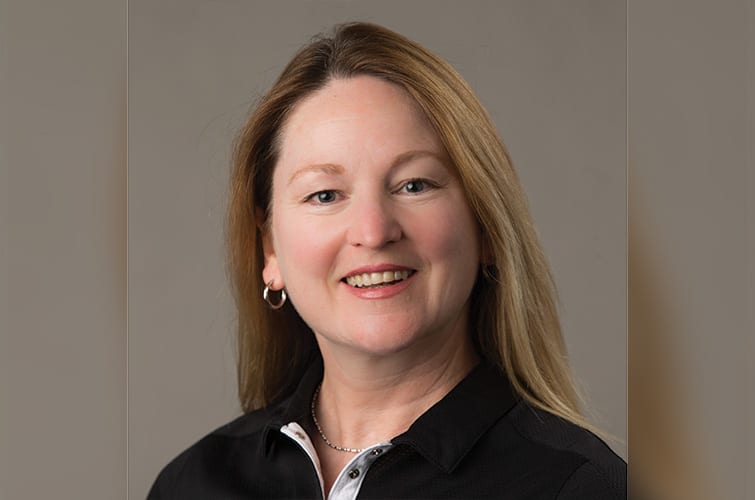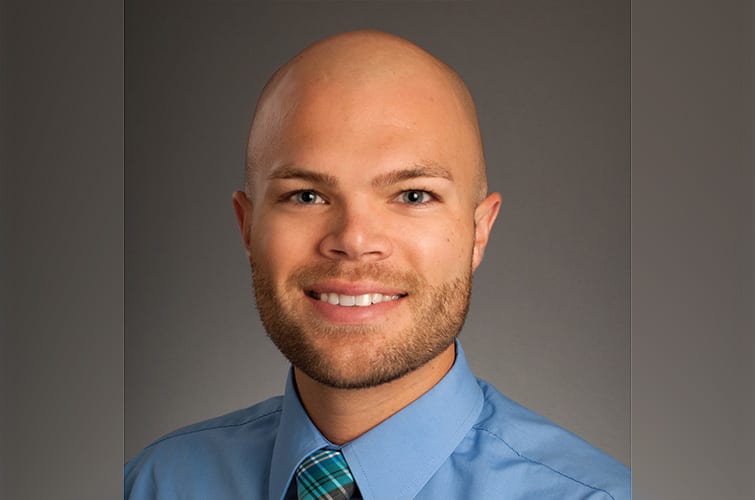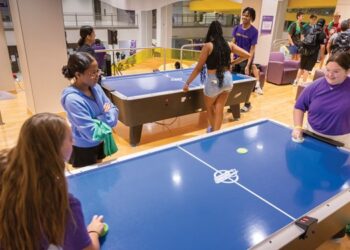Through constant changes and adjustments, the impacts of the last year have likely weighed heavily on you and your staff. Now more than ever, we are discussing the priority of staff well-being.
Below, two campus recreation directors share how they have been supporting their staff’s well-being:
As a leader, how are you supporting your staff’s well-being?
Teri Bladen, the director of Campus Recreation at Weber State University: We have enormous support from executive leadership who encourage working from home wherever possible. In our department, we devised an office rotation that allows most of our 10-person professional team two to three days in the office and two to three days working from home. Because we are working from home and lines can get blurred, I encourage the team to unplug after hours and on the weekends where appropriate. This assists with separating their work and home life while working from home.
As director, I look hard at our priorities. I’m backing off on initiatives that don’t directly impact our participants or support our staff and the institution’s mission.
We also continue staff events such as our end-of-year banquet, albeit virtually. Because of this, we can celebrate our accomplishments, play interactive games and stay connected.

Jason Hermes, the director of Campus Recreation at Boise State University: In order to better support our full-time staff, Boise State Campus Recreation has been forward thinking and intentional about both the frequency and format in which we communicate and connect with each other. We’ve done so by creating an additional Monday morning check-in. During, we provide important updates, discuss relevant changes in our COVID response, and recognize and celebrate our achievements together as a team.
Additionally, we scheduled a weekly “coffee break” to bring people together around the virtual water cooler and talk about anything but work. We even scheduled an outdoor, service-based team building activity at a local farm. It helped our team reengage in the type of hands on, experiential learning and team development opportunities we have been accustomed to in the past but were not initially available due to the pandemic.
In the future, do you see more programs and support for staff well-being?
TB: Absolutely. At Weber State, we are organizing and offering more support groups, activities and staff trainings on how to navigate the pandemic and social climate via our Counseling and Psychological Center, Student Wellness Center and Employee Wellness program. Feedback from institutional check-in surveys guide the content of these activities. I believe these opportunities will continue to be developed and implemented going forward.
JH: Yes. However, programs that support the well-being of our students, staff and faculty are not solely the responsibility of Campus Recreation. The great part of working at a university is we are surrounded by professionals who are also well positioned to support employees such as Human Resources, University Health Services, Gender Equity Center, Counseling Services, etc. Our well-being is unique and complex. Plus, in my opinion, it takes a concerted community effort to address our various yet individualized needs. For our Campus Recreation staff in particular, we will continue to honor, recognize and prioritize each other’s well-being as a collaborative effort based on the uniqueness of our team needs.

How do you suggest other leaders also prioritize their own well-being?
TB: Simply remind yourself you are human, too. Acknowledge your own responses to the events of this past year and identify ways to refill your cup. Model the behavior you’d like to see in your team by taking advantage of any resources your institution offers. Personally, I attend the virtual group exercise classes offered through our fitness program. It’s great to continue to see our student leaders in action.
JH: We are all leaders, and we all have unique challenges associated with the work we do. I suggest we put forth intentional efforts to prioritize — really prioritize — our individual well-being. This means your morning yoga session, lunch break meditation or walk after work must be committed appointments. Equally prioritize and commit to these as you do your one-on-one meeting with your supervisor. I recognize this is challenging on so many levels, especially when we are sometimes just trying to win the day. But talk about your well-being with your supervisor and make a plan. Commit some time, energy and focus for yourself. I promise you deserve it.










